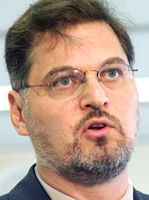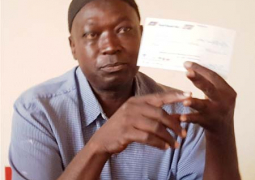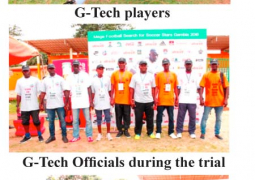
Professor Curtis F.J. Doebbler has called on African governments to put pressure on the developed countries to support their fight against climate change. An international human rights lawyer, who has since 1988 worked in Africa, Asia and the Middle East, teaching international human rights law and representing individuals in human rights cases, Professor Doebbler noted that Africa must take action on climate change.
He added that despite the fact that Africans have contributed the least to climate change caused by humans, there are widespread fears that Africa will be the worst hit.
Noting that Africa as a continent is the most vulnerable to the effects of the climate change, Professor Doebbler said it has been said, over and over again that Africa also has the least capacity and ability to cope with the problems of climate change.
He said that those who have been contributing to climate change are known, noting that unfortunately for now contributors are not voluntarily going to take action.
Professor Doebbler stated that "Africans are the most affected by climate change, and every effort should be made to bring about positive solutions, including being able to adapt and mitigate the effects of climate change."
"If that doesn't happen, not only will Africa remain underdeveloped, but the people will die in millions here, because of the effects of climate change."
Professor Doebbler's remarks came on top of a recent report by the Intergovernmental Panel on Climate Change, which stated that between 75 million and 250 million people in Africa are expected to be exposed to an increase of water stress by 2020, due to the effects of climate change.
The renowned professor made these remarks on Monday, while giving lectures on "Human Rights and Climate Change, African positions and action to adapt and to mitigate the adverse effects of Climate Change on Human Rights." The lecture was delivered at the Kairaba Beach Hotel.
The event was organised by the African Centre for Democracy and Human Right Studies (ACDHRS), in collaboration with African Commission on Human and Peoples' Rights (ACHPR), the United Nations Office for West Africa (UNOWA) and the Office of the High Commission for Human Rights (OHCHR).
According to the Professor, climate change is something that people don't really understand, but an urgent matter for debate.
According to him, the scientific evidence on global warming is strengthening on a daily basis, and there are risks over and above those that are usually considered.
In conclusion, he said: "My final message will be: if you don't take action, action would not be taken."



